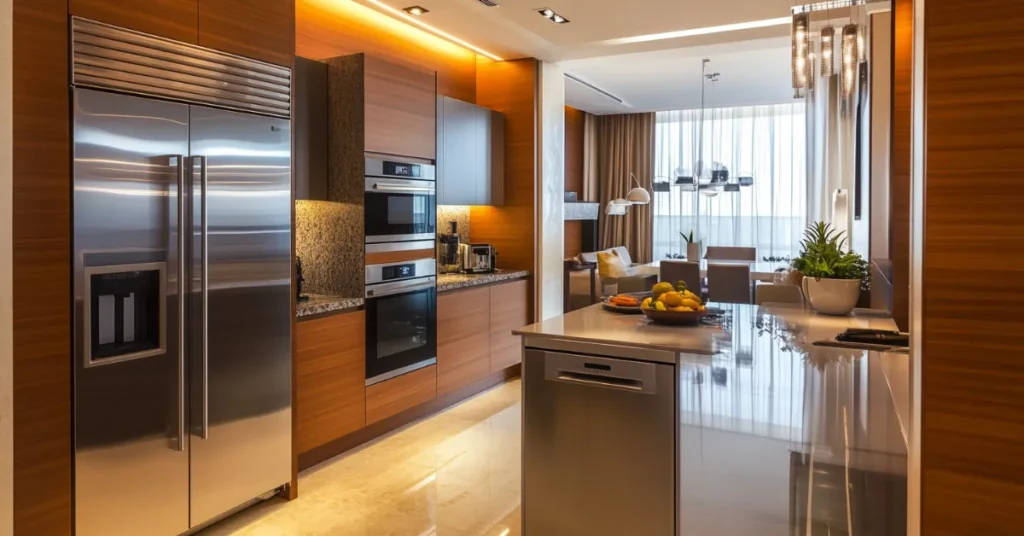When booking a vacation rental on Airbnb, one question occasionally crosses a guest’s mind: Can you fib about guests on Airbnb?
The short answer is no—it’s a risky move that can backfire on both guests and hosts alike.
At 10XBNB, we’ve seen how transparency about the number of guests is critical to running a successful Airbnb business and maintaining a positive experience for everyone involved.
Whether you’re an Airbnb host setting house rules or a guest wondering about extra guests, this Airbnb Tips guide really goes full-out into the implications of bending the truth, how Airbnb manages guest verification, and what happens when the number of guests doesn’t match the booking.
Why Guests Lie About the Number of Guests
It’s not uncommon for guests to lie about how many people will be staying at an Airbnb property.
The reasons vary: some want to avoid extra fees for additional guests, others hope to squeeze in more friends or family without the host noticing, and a few might even plan large gatherings or unauthorized parties.
Whatever the motive, underreporting the number of guests creates a ripple effect of problems for Airbnb hosts and the platform itself.
For instance, a guest might book for two people but show up with five.
These extra guests can strain the property’s resources—think water, electricity, or even wear-and-tear on furniture.
Worse, it can violate local regulations or guest limits set by the host, putting the vacation rental at risk of fines or complaints from neighbors.
What Happens If You Lie About the Number of People in Airbnb?

If guests lie about the number of guests staying, the consequences can range from mild to severe, depending on the situation and the host’s response.
Here’s what could happen:
- Extra Guest Fees or Additional Charges
Many Airbnb hosts charge an extra guest fee for additional guests beyond a certain number. If a host discovers more guests than reported, they can request extra fees through Airbnb’s resolution center. At 10XBNB, we encourage hosts to clearly outline these costs in their Airbnb house rules template to prevent guests from assuming they can sneak in extra people unnoticed. - Cancellation of the Booking
Hosts have the right to cancel a reservation if guests violate house rules, such as bringing extra guests without permission. This could leave guests scrambling to find a last-minute alternative, often at a higher cost. - Negative Reviews
If a host catches guests lying, they might leave a fair review detailing the incident. Bad reviews mentioning untrustworthy guests or unauthorized guests can tarnish a guest’s profile, making it harder to book future stays. - Eviction from the Property
In extreme cases, such as when extra guests lead to property damage or disrespectful behavior, hosts can initiate short-term rental evictions. This is rare but possible when guests pose a safety risk or violate strict house rules. - Serious Sanctions from Airbnb
Airbnb takes misrepresentation seriously. Guests who repeatedly lie about the number of guests could face account suspension or a permanent ban from the platform.
Do Airbnbs Check How Many Guests?
Airbnb hosts don’t always have a foolproof way to verify the exact number of guests staying, but they’re not clueless either.
Here’s how hosts and Airbnb keep tabs on occupancy:
- Check-In Observations
Many hosts greet guests at check-in or use security cameras at entry points (disclosed in the listing) to monitor who’s arriving. If more guests show up than the guest booked for, it’s an immediate red flag. - Occupancy Monitors and Security Software
Advanced hosts, especially those managing multiple vacation rentals, might use occupancy monitors or smart home devices to track how many people are in the space. These tools can detect unusual activity, like excessive water usage or noise levels, hinting at extra guests. - Neighbor Reports
In tight-knit communities, neighbors often notice large gatherings or more guests than expected and alert the host. This is especially common in urban areas or properties with strict local regulations. - Guest Communication
Hosts may ask guests questions during check-in or send friendly alerts via automated messages to confirm the number of guests. At 10XBNB, we recommend hosts maintain good communication to spot discrepancies early.
While Airbnb itself doesn’t actively patrol every check-in, the platform relies on hosts to report issues with additional guests or unauthorized parties.
How Does Airbnb Verify Guests?
Airbnb has systems in place to ensure only verified guests book stays, but the process isn’t foolproof when it comes to tracking extra guests.
Here’s how verification works:
- Guest Profiles and ID Verification
Airbnb requires guests to create profiles and, in some cases, upload government-issued ID. This ensures the person booking is who they say they are, but it doesn’t stop them from bringing unverified guests. - Booking Details
When a guest books, they must specify the number of guests staying. Hosts can set a maximum guest limit, and Airbnb enforces this by preventing bookings that exceed it—unless guests lie after the fact. - Host Oversight
Ultimately, Airbnb hosts are responsible for vetting guests. Some use tools like how Airbnb vets guests to screen profiles and reviews, but this doesn’t account for unregistered guests slipping through.
For a deeper dive into managing guest expectations, check out our Airbnb Tips guide, where we cover strategies for identifying problematic guests before they book.
What Happens If You Put the Wrong Number of Guests on Airbnb?
Mistakes happen—sometimes a guest might accidentally input the wrong number of guests.
But intentionally underreporting is a different story.
Here’s what could unfold:
- Host Confrontation
A responsible host might reach out via professional and friendly communication to clarify how many guests are actually staying. If it’s an honest error, they may simply adjust the extra guest fee. - Property Damage or Overuse
More guests than planned can lead to costly repairs or excessive wear on the Airbnb property. For example, extra guests might mean more downtime for cleaning or even pets causing unexpected messes. - Legal or Insurance Issues
If unauthorized guests cause serious financial loss or violate local occupancy laws, the host’s insurance might not cover damages, leaving both parties in a bind. - Negative Feedback Loop
Guests who misreport the number of guests risk negative reviews from hosts, while hosts who tolerate disrespectful guests might see their own ratings dip due to neighbor complaints or bad experiences.

The Host Perspective: Dealing with Guests Who Lie
For Airbnb hosts, discovering extra guests is a headache that can disrupt the entire rental arbitrage game plan.
At 10XBNB, we’ve worked with countless hosts who’ve faced this issue.
Here’s how they handle it:
- Set Clear House Rules
A detailed Airbnb guest agreement template can outline guest limits, extra fees, and consequences for bringing extra guests. This paper trail protects hosts if disputes arise. - Charge for Additional Guests
Many hosts include an extra guest fee in their pricing structure. This not only covers the added strain on the property but also discourages guests from sneaking in more people. - Prevent Guests with Technology
Tools like noise monitors or security software can alert hosts to large gatherings or more guests than expected, allowing them to address issues quickly. - Encourage Open Communication
Friendly communication at check-in—such as asking, “How many guests will be staying with us?”—can deter guests from lying while keeping the tone welcoming.

The Guest Perspective: Why Honesty Pays Off
For guests, lying about the number of guests might seem like a way to save extra money, but it’s a gamble that rarely pays off.
Hosts often notice additional guests, and the fallout—extra fees, eviction, or bad reviews—can ruin a trip.
Plus, Airbnb’s existing reviews system means your reputation follows you.
Being upfront about how many guests are staying ensures a smoother experience and keeps the vacation rental community thriving.
Unique Insights from 10XBNB
At 10XBNB, we’ve seen firsthand how grey area guests—those not explicitly reported but not causing harm—can still complicate things.
For example, a guest might bring a second person for a day visit, not realizing it violates house rules.
Other Airbnb hosts we’ve coached have dealt with untrustworthy guests who book for one but arrive with a crowd, leading to serious sanctions like property bans.
Pro Tip: Hosts can use occupancy monitors discreetly (with proper disclosure) to prevent guests from exceeding limits without confrontation.
Guests, meanwhile, should double-check the listing’s guest means—some hosts are flexible if you ask ahead.
External Insight
According to Airbnb’s official policy, misrepresentation of the number of guests violates their terms of service.
This external source aligns with our advice: transparency is the best approach for both parties.
Final Thoughts
So, can you lie about guests on Airbnb? Technically, yes—but you shouldn’t.
The risks outweigh the rewards, whether you’re a guest facing extra fees and negative reviews or a host dealing with disrespectful guests and potential criminals.
At 10XBNB, we empower hosts to establish professional boundaries and encourage guests to respect them.
By keeping the number of guests honest, everyone enjoys a better vacation rental experience.
Stick to the rules, communicate openly, and your Airbnb stay—or hosting gig—will be a win-win.
Need more strategies?
Explore our gift Airbnb hosts guide for thoughtful ways to build rapport with your host or guests.













